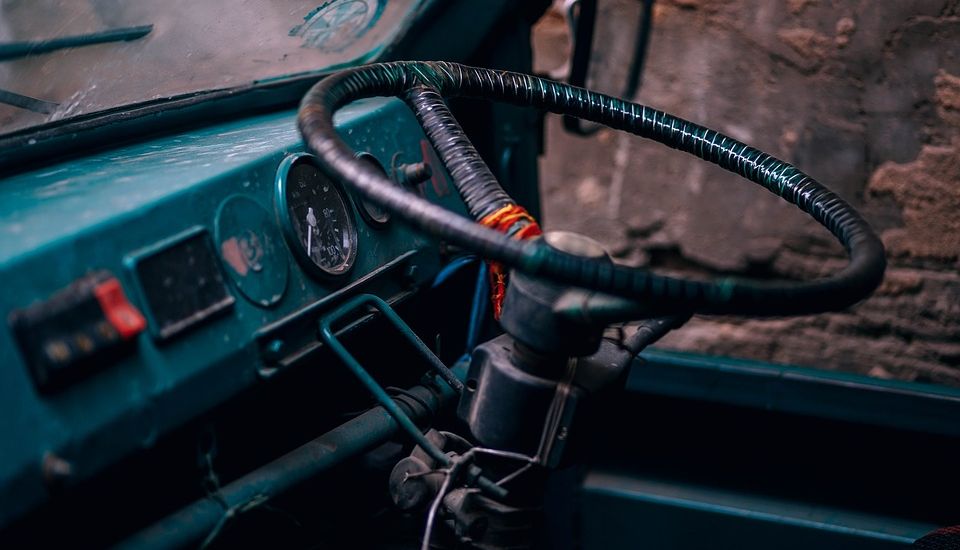

Areas of the island risk becoming improvised scrapyards for unwanted vehicles, with one dumped roughly every three days in Jersey.
Figures obtained by Express showed that 103 vehicles were left around the island at States, Ports of Jersey and Andium sites in 2017 – and removing them comes at a cost to the taxpayer.
A response to a Freedom of Information request revealed St. Helier as the apparent scrapyard capital of the island, with one vehicle left behind roughly every three weeks on States premises alone within the parish.
Over the past five years, £7,490 has been spent on removing vehicles from car parks run by the Department for Infrastructure.
The figures showed that Health and Social Services premises, as well as the Education Department, were also affected. Five vehicles were left at Health sites last year.

Pictured: 59 cars were dumped at Andium Homes premises last year.
Ports of Jersey – the entity responsible for running the island’s airport and harbour – said that they had to tow between four and five discarded cars yearly, coming at a cost of £2,200 to £2,800 per year. That includes advertising costs in the local press and administrative costs, as well as the price of getting rid of the cars.
They would not disclose any ‘hotspots’ for fear of encouraging further dumping, but noted that vehicles left beyond their permitted time was an ongoing issue.
The true scale of the problem could be much worse than the figures reveal, however - they don’t include those left on private land, blighting the island’s beauty spots or even afflicting charity premises.
Last week, Jersey Hospice appealed to the owner of a vehicle left at their palliative care centre. The Honda driver had left their vehicle on the premises for nearly a month, taking up a space reserved for the visiting friends and family of those with terminal conditions.
Fortunately, they were able to get hold of the owners, which is often a difficult feat.
Another charity, the National Trust, complained last summer of a Land Rover abandoned at their Moulin de Quetivel site. Islanders reported that it had been there for so long that it was “full of cobwebs.”
But States social housing provider Andium Homes appear to have the worst difficulties – they towed and scrapped 59 vehicles in 2017.
That came at a cost of £14,160 or around £240 per vehicle, comprising two towing fees and the scrapping charge.

Pictured: The number of vehicles left at Department for Infrastructure-run carparks over the past five years, and the costs of dealing with them.
Andium said that they had made efforts to clamp down on vehicle dumpers, but the issue, which mostly affects out-of-town locations, was still presenting both a safety risk and nuisance to residents.
“Abandoned vehicles on our sites prevent our clients from being able to park, so this is clearly a concern for us and something we have been keen to tackle. We try to protect parking for residents by using a permit system across most sites, barriers where necessary and every site that we manage has signage which makes it clear that cars will be removed if found to be unauthorised,” a spokesperson said.
Explaining their policy for dealing with ditched vehicles, they added: “Abandoned vehicles are identified by either not being in regular use (current policy is 28 days), unpermitted or where it is quite obviously not in a working condition. If it is not causing a danger, a polite warning notice will be issued, and followed up after the 28 days. Where it is causing a danger the vehicle will be removed immediately, as is our right under the law.
“Once removed from the site it was abandoned, the vehicle is taken to a secure storage facility and the registered keeper written to immediately. If no one has claimed the vehicle after 4 weeks, a notice is inserted in the government gazette and the vehicle is then scrapped 2 weeks after this notice and subsequently deregistered.”
Comments
Comments on this story express the views of the commentator only, not Bailiwick Publishing. We are unable to guarantee the accuracy of any of those comments.